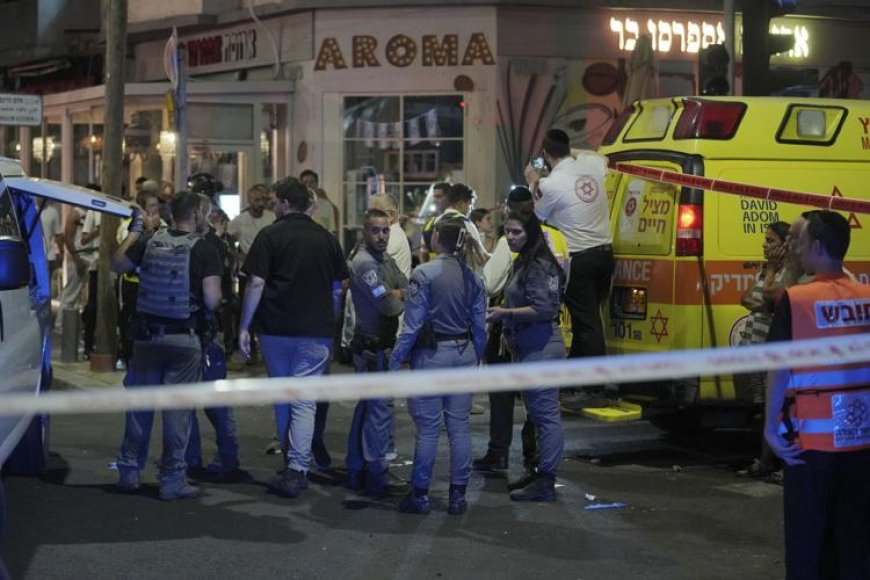Drone Strike by Yemen's Houthi Rebels Hits Tel Aviv, Killing 1 and Injuring 10
A drone strike launched by Yemen's Houthi rebels struck the heart of Tel Aviv early Friday morning, killing at least one person and injuring ten others in a significant escalation of regional tensions. This attack marks the first lethal strike by the Houthis into Israeli territory.

A drone strike launched by Yemen's Houthi rebels struck the heart of Tel Aviv early Friday morning, killing at least one person and injuring ten others in a significant escalation of regional tensions. This attack marks the first lethal strike by the Houthis into Israeli territory.
The Iranian-made drone, identified as a Samad-3 model, impacted near the U.S. Embassy in central Tel Aviv around 3:10 a.m. local time. The explosion caused widespread damage, including shattered windows and damaged vehicles, with debris scattered across a large area. The Israeli military is currently investigating the failure of its air defenses to intercept the drone, which had managed to bypass the country's extensive multilayered missile defense systems.
Israeli Military Response and Investigation
Rear Admiral Daniel Hagari, the chief spokesperson for the Israeli military, confirmed that the drone had been detected but was not intercepted due to what he described as an "error" in the defense system. Another military official cited "human error" as a possible cause. The Israeli Defense Forces (IDF) are conducting a thorough investigation into the incident to determine the exact failures in the defense protocol.
Houthi Claims and Regional Implications
Yahya Sare’e, the spokesperson for the Houthis, claimed responsibility for the attack via a statement on the social media platform X. Sare’e asserted that the strike was in retaliation for Israel’s ongoing conflict with Hamas and was aimed at one of several pre-identified targets. The Houthis have previously targeted ships in the Red Sea and Gulf of Aden but have not previously conducted attacks within Israel.
The drone attack could escalate fears that the ongoing Gaza conflict might spread beyond its current borders, potentially involving additional regional actors. This incident comes on the heels of Israeli airstrikes in southern Lebanon that reportedly killed a Hezbollah commander and several militants, further straining the already tense regional dynamics.
U.S. State Department and Israeli Public Reaction
The U.S. State Department confirmed that the drone strike did not damage the U.S. Embassy or harm its staff. This attack has prompted renewed scrutiny of Israel’s defense capabilities and response strategies. Israeli civilians in the affected area expressed shock and frustration, with some questioning the effectiveness of the country’s defense systems.
Yossi Nevi, a resident displaced by the attack, expressed his disillusionment, stating that the “human error” explanation undermines trust in the military. Similarly, Eldad Namdar, a local business owner, voiced concerns about the long-term implications of the conflict, emphasizing the need for a comprehensive resolution to prevent future incidents.
Impact on Diplomatic Efforts and Military Strategy
The attack occurs as international mediators work to broker a cease-fire in the Gaza conflict, which has resulted in severe casualties and a humanitarian crisis. The Israeli government remains divided over potential negotiations, with some officials advocating for a deal to secure the release of hostages, while others oppose any concessions.
The broader implications of this strike on Israel’s military strategy and regional stability remain to be seen. Analysts worry that the successful penetration of Israel's air defenses by a drone may encourage further aggression from regional actors, potentially complicating efforts to end the ongoing conflict and stabilize the region.













































